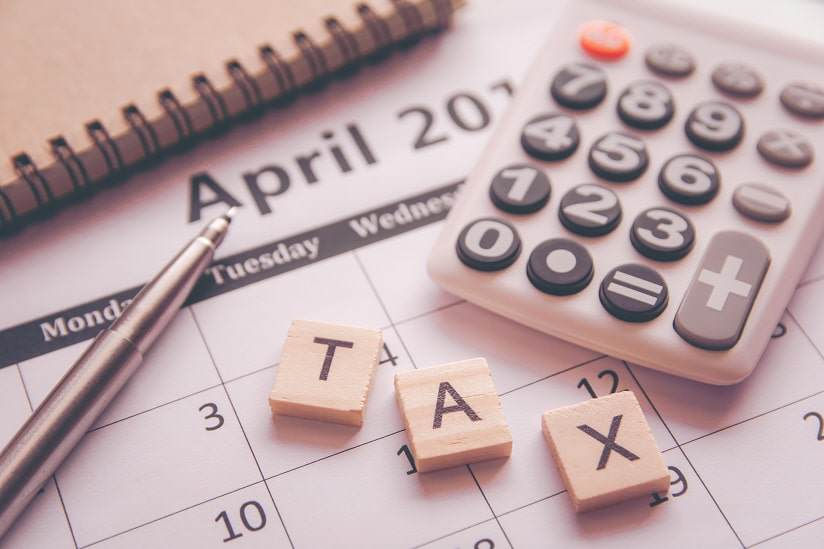24 tax tips for nonresidents to maximize their US tax refund in 2024
Taxation in the United States is unique and complicated, especially if you are a nonresident. Maybe you have a lot of questions when you complete your tax return and don’t want to pay a cent more than you have to.
This is where this blog may help you.
Here are 24 tax tips that can answer your questions and help you trim your tax bill and maximize your US tax refund in 2024.
1. Remember! You have to file a nonresident tax return in the US
If you are a nonresident alien living and working in the United States, you must file an income tax return. This applies to all nonresident aliens studying there on an F Visa, J Visa, M Visa, or Q Visa.
The easiest way to file your US nonresident income tax return is online with Sprintax or by mailing a paper return (Form 1040-NR) to the Internal Revenue Service.
Sprintax is approved by the IRS to submit Federal tax returns online (E-Filing). In short, you no longer have to download, print, and mail a physical copy of your tax return to the IRS.
2. Even if you did not earn US-sourced income, you may still have a filing requirement
If you earned income, you have to file a non-resident income tax return on Form 1040-NR. If you did not earn any income you may need to file a Tax Form – 8843.
Each individual who is a nonresident alien and is present in the United States under an F, J, M, or Q immigration status (both “-1” and “-2”) is required to file Form 8843, regardless of age or income received.
3. You must file if you were self-employed or earned income from investments or cryptocurrency
If you have made a profit from trading cryptocurrency on a US exchange or broker while living in the US, you are required to declare that income.
The IRS treats cryptocurrency as property, and any profit made from it will be subject to Capital Gains Tax at 30% and must be reported on your 1040-NR tax return.
However, if you dispose of your investment for a loss, you will not need to pay tax, but as a nonresident, you will not be able to use the losses to offset any future tax liabilities.
The same applies to investment profit. Dividends received from your investments will also be subject to a 30% tax. Keep in mind that you may be eligible for a reduced tax rate or tax exemption if you are able to claim tax treaty benefits
4. Correctly determine your tax residency status
As an international student, if you work in the United States you will be taxed, but the extent to which you are taxed will depend on your residency status and where your income, whether from employment or capital gains, was earned or sourced from.
Not all nonresident aliens will meet the residency requirements for filing a US income tax return.
You are only considered a US Resident if you:
- Have been issued a Green Card, or
- Meet the Substantial Presence Test guidelines, which state that you have been in the US for at least 31 days in the current year and 183 days in the previous two years.
If you struggle with determining your residency status, don’t forget that Sprintax allows you to complete the substantial presence test and determine your tax residency status for free!

5. Figure out your tax obligations
Nonresident students are generally taxed on their US source income, such as wages or salaries earned in the United States which includes money earned while in the country.
The IRS, on the other hand, has no authority to levy taxes on income earned by nonresidents in their home countries or any other foreign country.
You may also be required to file a nonresident tax return if you receive certain types of income, such as wages, scholarships, fellowships, rental income, interest, dividends, and grants. However, certain types of income may be exempt from income tax, such as gifts, bequests, and inheritances.
Read more: US tax season survival guide for international students on F-1 visas
6. You must also file if you received a gift or inheritance
Gifts and inheritances may be taxable to the donor or tax-free, depending on the amount of the gift or inheritance and the relationship between the donor and the recipient.
7. Consider the tax implications of receiving a scholarship or fellowship
Scholarships and fellowships may be taxable or tax-free, depending on the terms of the award and how the funds are used. It’s the same with grants.
8. Be aware of the tax implications of on-campus employment
While studying, international students may be allowed to work on campus, but they must report their earnings on their tax returns.
9. Know the rules for off-campus employment
International students may also be able to work off campus, but there are strict rules governing this type of employment.
For instance, in order to work off campus, students must have permission from US Citizenship and Immigration Services (USCIS), and they might have to pay social security and Medicare taxes.
10. Understand the tax implications of self-employment
Self-employed international students might also be required to pay regular income tax in addition to self-employment tax.
11. Organize your tax records. Having a clean tax record counts
The most difficult part of the tax season for many people is gathering all the necessary documentation. This includes last year’s tax return, W-2s, 1099s for this year, receipts, other income documents, and canceled checks.
It’s important to keep good records of your income, deductions, and other tax-related information. This will make it easier to file your 1040-NR tax return and ensure that you are paying the correct amount of tax.
Good organization may have financial rewards. Find out what forms you need and print out a tax checklist.

12. You may be required to file a federal and state tax return
International students may need to file a federal income tax return using Form 1040NR if they have US-source income, or Form 1040 if they are considered resident aliens.
Whether or not international students should file a state tax return depends on the state they live in and the amount of their income.
Those who reside in states which do not collect income taxes may not be required to file a state tax return. However, even if they are exempt from filing a federal tax return, they may still need to file a state tax return in some states if their income exceeds certain thresholds.
It’s crucial to confirm the requirements for the state in which you currently reside because they can differ from one state to another. Sprintax can help you determine your state filing requirements.
13. Understand your tax treaty entitlements
Understand the tax treaty between your home country and the United States.
Many countries have a tax treaty with the United States that can affect your tax obligations.
For instance, the treaty may provide a lower tax rate on certain types of income or allow you to claim certain credits or deductions.
14. Understand the difference between tax deductions and tax credits
You need to understand the distinction between tax credits and tax deductions and figure out which are applicable for nonresidents. Both can reduce what you owe on your tax bill but in different ways.
Tax credits directly reduce the amount owed on taxes by providing a dollar-for-dollar reduction in your tax bill. Tax credits are more valuable than tax deductions in general because they lower the amount you must pay, whereas a tax deduction reduces your taxable income.
Changes in the taxation of nonresidents under the Tax Cut and Jobs Act practically waived most of the deductions that they can claim. The following are not available anymore: personal exemption and itemized deductions except the state tax deduction.
You can only use as a deduction the state and local taxes you pay in the state you worked in.
You still can claim qualified educational expenses you pay out of your pocket if you are a student at a US educational institution but only to the amount of your grant/scholarship.
In general, tax credits are not granted to nonresident aliens except in some very rare cases. Nationals of Canada, Mexico, and South Korea, students, and apprentices from India may be eligible to claim either child tax credit for children that are US residents or credit for other dependents if the child is a nonresident alien.
Sprintax can review your details and circumstances for your applicable allowances, deductions, and credits. The software will finalize the calculations and prepare your tax return.
15. Make sure you have your SSN / ITIN
You are required to have a government-issued Social Security Number (SSN) or an Individual Taxpayer Identification Number (ITIN) before you can file a US income tax return. Make sure you’ve arranged that.
To be eligible for any tax treaty benefits, foreign nationals are required by IRS regulations to possess either a Social Security Number (SSN) or an Individual Taxpayer Identification Number (ITIN).

16. File early to avoid tax deadline stress
Most taxpayers claim that tax season is stressful. When you have a daunting task ahead of you, it’s best to tackle it immediately rather than procrastinate.
Worrying over something often causes more anxiety than actually taking action. The same holds true for income taxes.
Filing taxes before the deadline can provide several advantages. Not only does it allow you to avoid the stress of meeting the deadline, but it also ensures that your return is processed as quickly as possible.
By filing early, you can also get a head start on any tax planning or adjustments that need to be made. Furthermore, those expecting a refund will receive it much sooner if they file early.
So, don’t wait until the last minute to file your taxes, get a head start and file early to avoid any unnecessary stress or delays.
17. Or at least file before the deadline to avoid fines and penalties
The deadline for nonresidents to file their tax return is generally 15 June if they are outside the US, but if you are in the US, self-employed, or have taxes withheld, you may need to file by 15 April. If you need more time to file, you can request an extension, but you will still need to pay any taxes owed by the original deadline.
Penalties and interest will be assessed if you fail to pay your taxes on time. You can also jeopardize any future visa applications.
18. If you miss the deadline it is still important to file
Nobody wants to get into trouble with the IRS. Don’t panic if you missed this year’s filing deadline but act quickly.
Missing the filing deadline or not submitting your return by the tax extension deadline can result in penalties imposed by the IRS. They charge 5% of the taxes due for each month or part of the month that the tax return is not filed.

19. Plus, you may be due a tax refund!
International students may be entitled to a tax refund if they had taxes withheld from their income but their tax liability was lower than the amount withheld. To claim a refund, you’ll need to file a tax return and attach any required documentation.
Claim your international student tax refund with Sprintax
20. Even if you have already left the US you should still file and you can still collect your tax refund
As a nonresident, it’s important to know that you may be eligible for a tax refund even after you have left the United States. To get your refund you simply need to file a tax return online.
So why leave your money in the US?
21. File an amended tax return if you find out you made a mistake
Made a mistake on your tax return? You can fix it by filing an amended tax return.
A tax return can be considered ‘incorrect’ or ‘incomplete’ for a variety of different reasons. Simple things like forgetting to sign a form, to big issues like misreporting income, or incorrectly calculating a deduction can all affect the validity of a tax return. Learn more here.
22. Register with Sprintax, here’s why
If you are unsure about your tax obligations as a nonresident, Sprintax can help you!
It is a tax preparation software designed specifically for non-US residents who are required to file US taxes.
The software is designed to make it easier for non-residents to prepare and file their US taxes, and claim their US tax refunds.
It will provide step-by-step guidance and assistance with calculating and claiming credits and deductions based on your personal situation.
Sprintax also provides support for filing state and local taxes in addition to federal taxes.
The software is available in a variety of subscription plans and is intended for use by individuals as well as businesses and organizations.
23. No, if you are a non-resident, you can’t file with TurboTax (Don’t file as a resident if you are a non-resident)
You cannot file your taxes with TurboTax if you are a nonresident.
TurboTax doesn’t support IRS Form 1040-NR (U.S. Nonresident Alien Income Tax Return) while Sprintax offers both federal and state tax preparation for international students, scholars, and nonresident foreign professionals.
What’s more – Sprintax is TurboTax’s partner of choice and the only online solution to offer federal tax e-filing and state tax return preparation for nonresidents!
File Form 1040-NR online with Sprintax
24. Plus – you can E-file with Sprintax which will save you a lot of tax stress at the deadline
Say goodbye to paper tax returns! You no longer need to download, print and mail a physical copy of your tax return to the US tax office.
Sprintax is now approved by the IRS for E-filing, which means you can file your taxes from the comfort of your own home.
Plus, E-Filing your tax return guarantees faster processing by the IRS compared to mailing a paper tax return.
Still have questions?
You can contact Sprintax Live chat to help you with the tax preparation process.
Remember, you must file your tax documents before 15 July.
With Sprintax you can:
- Save time and stress!
- Determine your residency status
- Prepare a fully compliant US tax return
- Maximize your State tax refund
- Avail of our 24/7 Vita Qualified Live Chat facility
Prepare your US nonresident tax return today!

